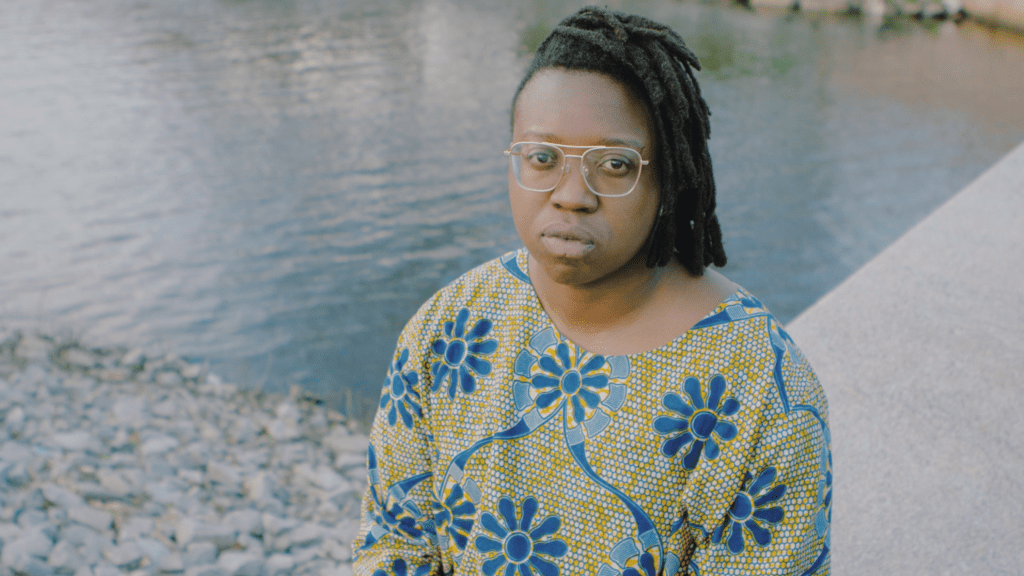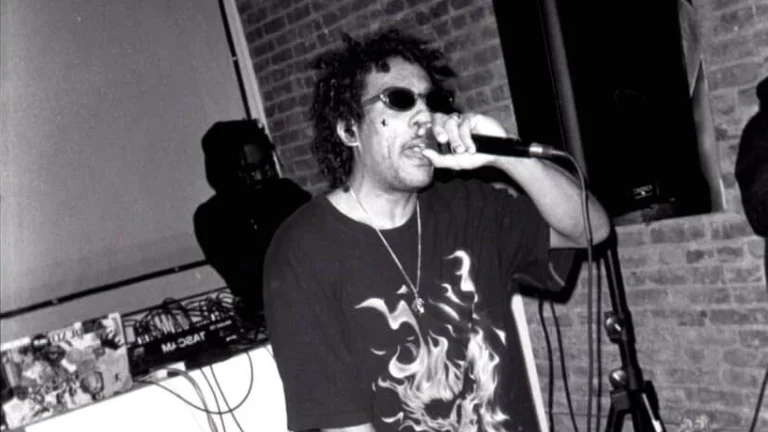To say that America has been drowning in its own merciless demons is an understatement. This isn’t even up for debate. You can go back as far as you want from the most recent #BlackLivesMatter protest to Trump’s inauguration to 9/11. It will always feel like every person is at war with one another with little sign—if at all—of true reconciliation. Money is a temporary solution to such problems. It’s a tangible symbol of power, and it’s being use to blind us. So, imagine knowing all of this AND dealing with a whole different war: one on your own front lawn.
This concept album, The King, largely wraps around Anjimile allowing himself to be fully emotionally vulnerable. I mean, really tap into his anger and discomfort. This isn’t a new concept, as men have not only mined anger for art, anger has unfairly been used as a stereotype for how men operate. But Anjimile’s angle came from a Pitchfork interview where he had revealed that his childhood was spent forbidden to show anger towards his family. As a result, The King is meant to be a record that uses its dark palette for catharsis sake.
Expectedly, Anjimile immediately tackles the source of his pain through three songs. “Mother” opens with Anjimile letting us know “my mother loves to fight.” A statement for which he hopes wouldn’t get in the way as he asks his mother, “am I your son? Can I be one?” Anjimile reveals more details about his estranged relationship on “Anybody,” recalling that his “mother put her words down his throat.” He further devastatingly ends such statement declaring that his ” mother had a lot to say” and that his “father didn’t care.” As a result of these childhood discomforts, The King finds Anjimile fighting and praying off his deep depression and anxiety. “Genesis” and the gentle “I Pray” are specific examples to look towards as he begs to “get out of his head.”
Arrangements swing from delicate and kaleidoscopic to just bare heavy guitar on The King. Deep thoughts of getting old and bitter in a backwards America (“Animal”) and the seeking of love from an alcoholic, emotionally unavailable parent (“Father”) are all approached with the same kind of softness that the topic calls for. As a result, The King pulls off what even some of today’s best hardcore punk bands today couldn’t touch: deep-seated frustration and rage with both teeth-gnashing and menace—but without the emotional lash out. Rather, it is an album that approaches such an emotion with a sense of subtlety and care. The album leaves enough room for exploring both fear and hope for true healing. By presenting itself as a sad plea for hope, “I Pray” offers a soft hand for healing before asking if he has “earned the right” to really unpack without fear and pain.
Anjimile brought forth a folk album that is dark, complex, delicate and necessary at a time where the world is looking to unpack their own emotional discomforts. While The King may have been a saving grace for Anjimile, this album can also be therapeutic and validating for the listener.





